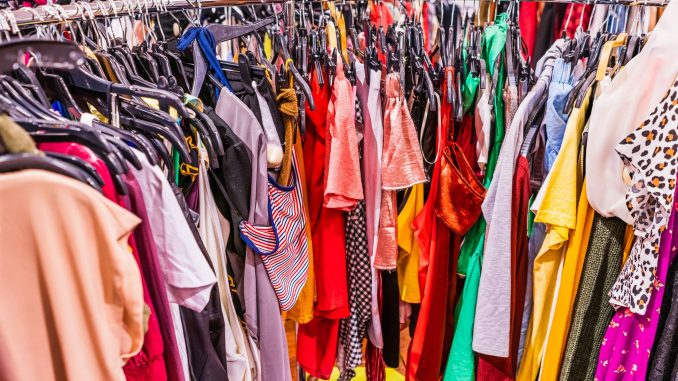
Rachel Dobkin, Business and Culture Editor |
As we move into the fall fashion season, it’s easy to get swept up in new trends and give all your money to clothing companies like Shein, but it’s crucial to know where your clothes come from and their environmental impact on the world.
We’ve all done it before. You go on Tik Tok and see as your favorite influencers showing their hauls from clothing companies like Shein. Behind the glitz and the glam are unethical practices that not only destroy the planet but the lives of thousands of people, mostly women. Although there are amazing influencers that promote sustainable and ethical practices like Lauren Ferree on Instagram, many influencers don’t think about the consequences of their content. Who wouldn’t want to buy something flashy on a beautiful woman? So, we indulge in fast fashion and others suffer from it.
Everyone should know the term fast-fashion. It’s cheap, trendy clothes that get produced at a rapid speed. Back then we used to have four fashion seasons, hence the fall fashion coming out. Now we have clothing companies like Forever 21 and H&M that roll out new lines every two weeks, and there are more trends than people that keep up with them. The result is the unethical, cheap, and fast production of clothing in third-world countries. As well as the massive influx of clothing that gets thrown away once a new trend pops up.
It seems as if everyone has forgotten about the Rana Plaza collapse in 2013. With around 1,100 garment workers dead and 2,600 more injured, this catastrophic event was the world’s largest industrial incident. This is a prime example of the horrific effects of unethical business practices. Companies like the ones I’ve mentioned before, and many others will try to find the cheapest manufacturers so that they can make the clothes cheap for people, so they keep buying them. That means they outsource to sweatshops in third-world countries, where mostly women and children are subject to unsafe working conditions and little pay. I feel like we have become so desensitized from this notion. We hear that children in China make all of our stuff for pennies a day, but we don’t actually do anything about it because that’s just the way it is. But this cannot go on. Rana Plaza should’ve shown us that, but we just brushed it under our rug of historic events that we caused, but don’t ever want to talk about.
Companies get away with these unethical practices because we allow them to lack transparency. We don’t ask where the clothing comes from, and they are not even willing to tell the people who do care enough to ask. We need to hold these companies accountable and if they don’t comply, we can’t give them our business.
Deciding not to buy into all of the fast trends and buying from good sources will also help the environment. We like to think of the causes of global warming to all be in the air, but it’s on our backs too. If you don’t have the money to buy from ethical and sustainable clothing companies, then go thrift shopping. There are multiple thrift stores here in Oneonta such as Salvation Army, Shakedown Street, Silk and Treasures Consignment Store, and more.
With all this being said, there is a big myth that needs to be debunked. It’s okay to buy clothes from these companies, in moderation. If you really need a certain clothing item, especially if you don’t have the money or resources to shop anywhere else, it’s okay to make a purchase from these companies. That is not fast fashion. That is, you making a decision based on your lifestyle and needs. This is the last resort, and you should try to shop ethically and sustainably when you can.
Another way you can contribute to the cause is by educating yourself. I highly recommend watching “The True Cost,” as it’s where most of my research came from. It has incredible information and heart-breaking first-hand accounts of the women behind the industry.
Leave a Reply